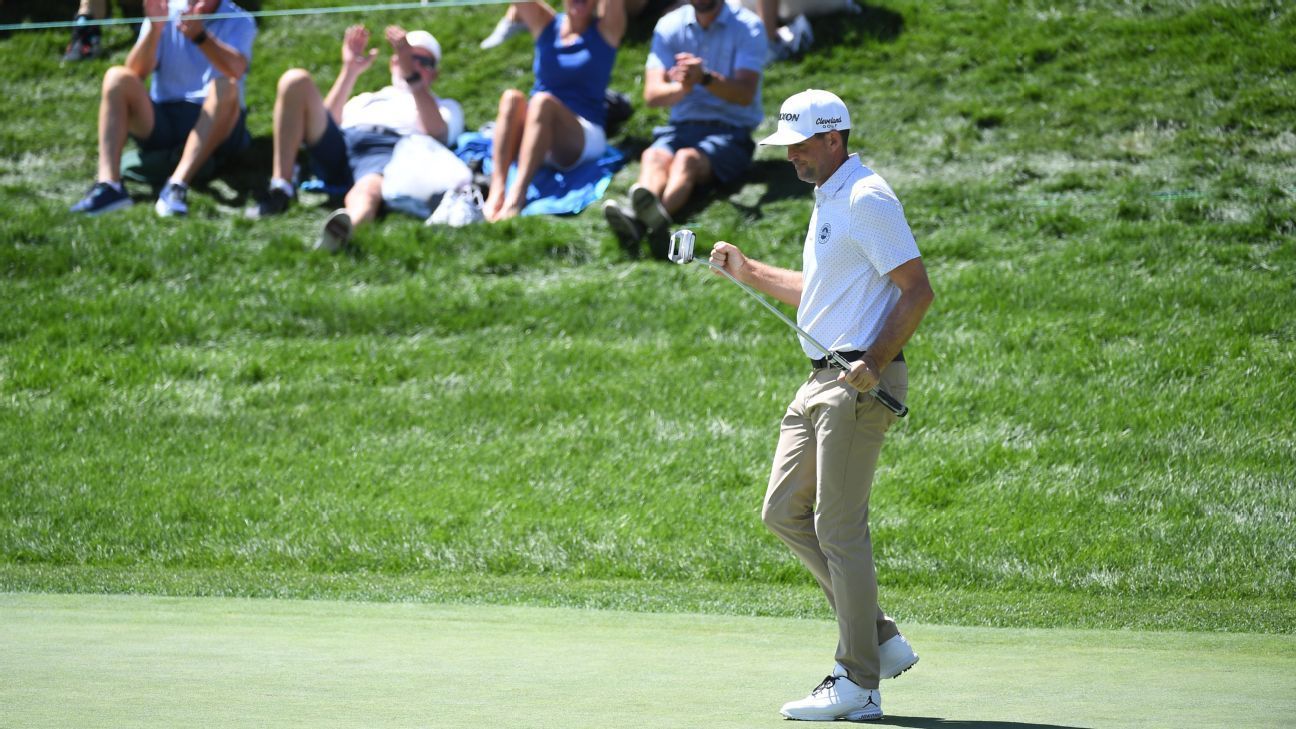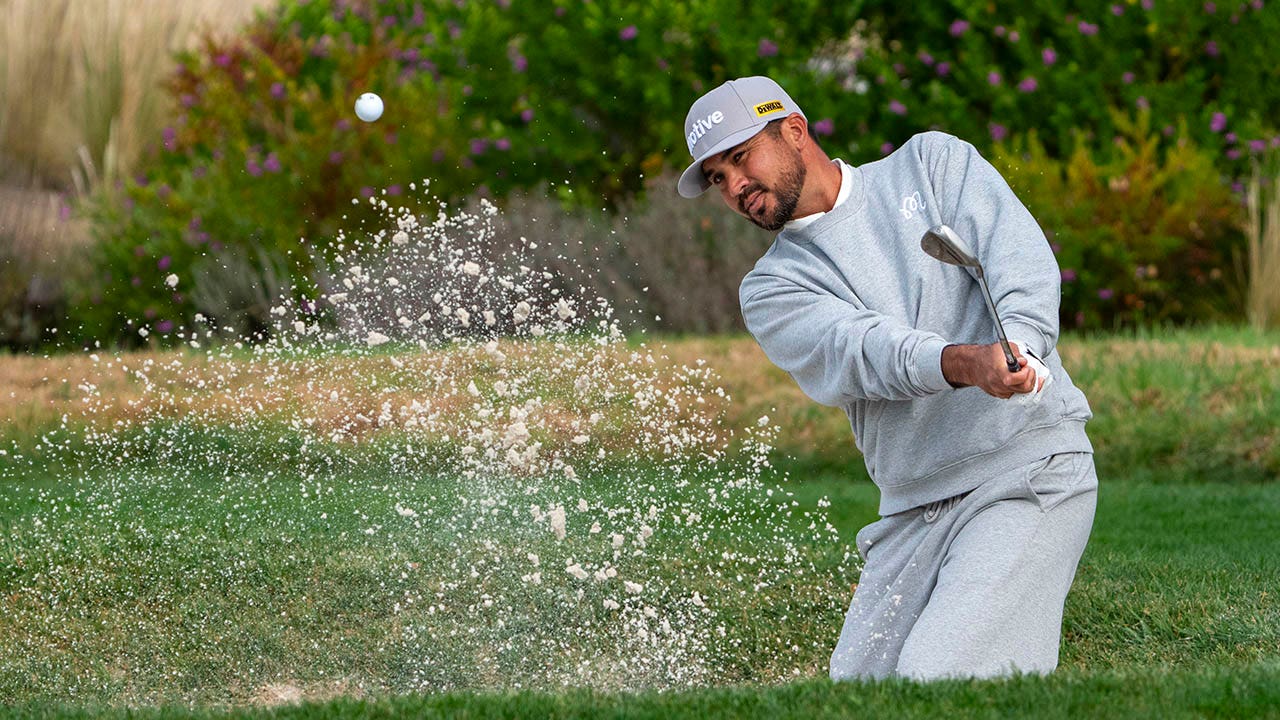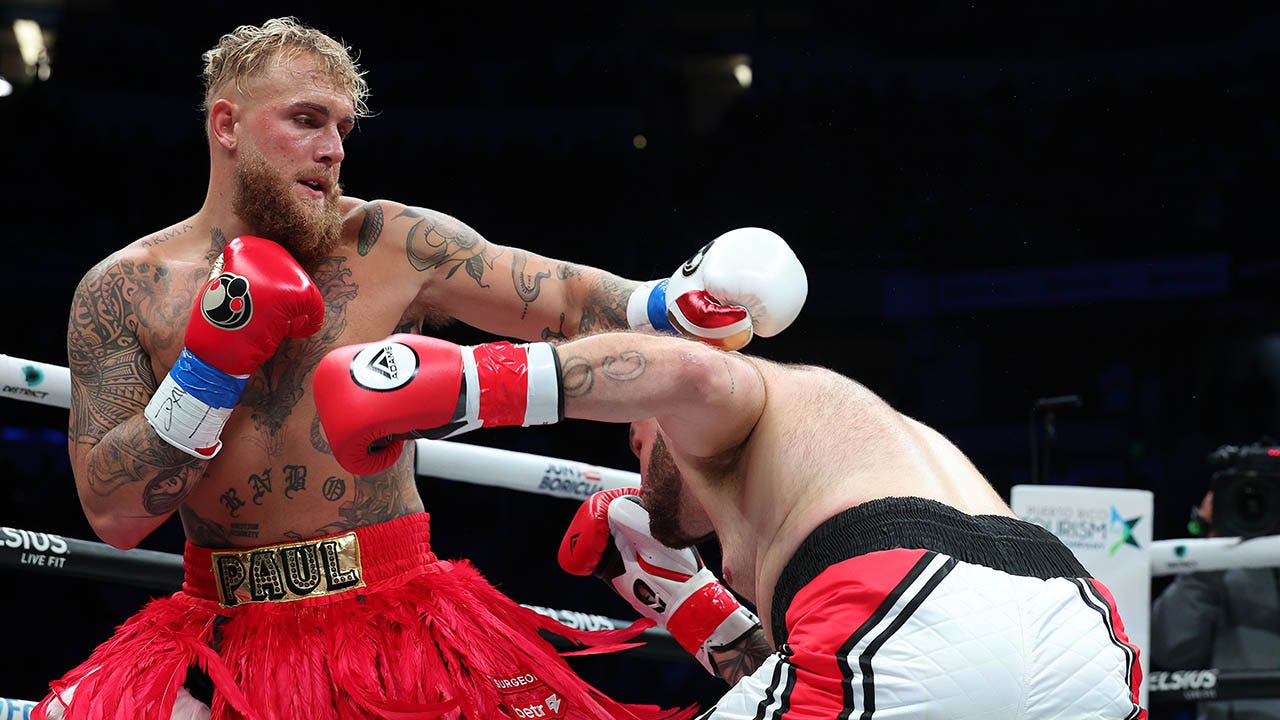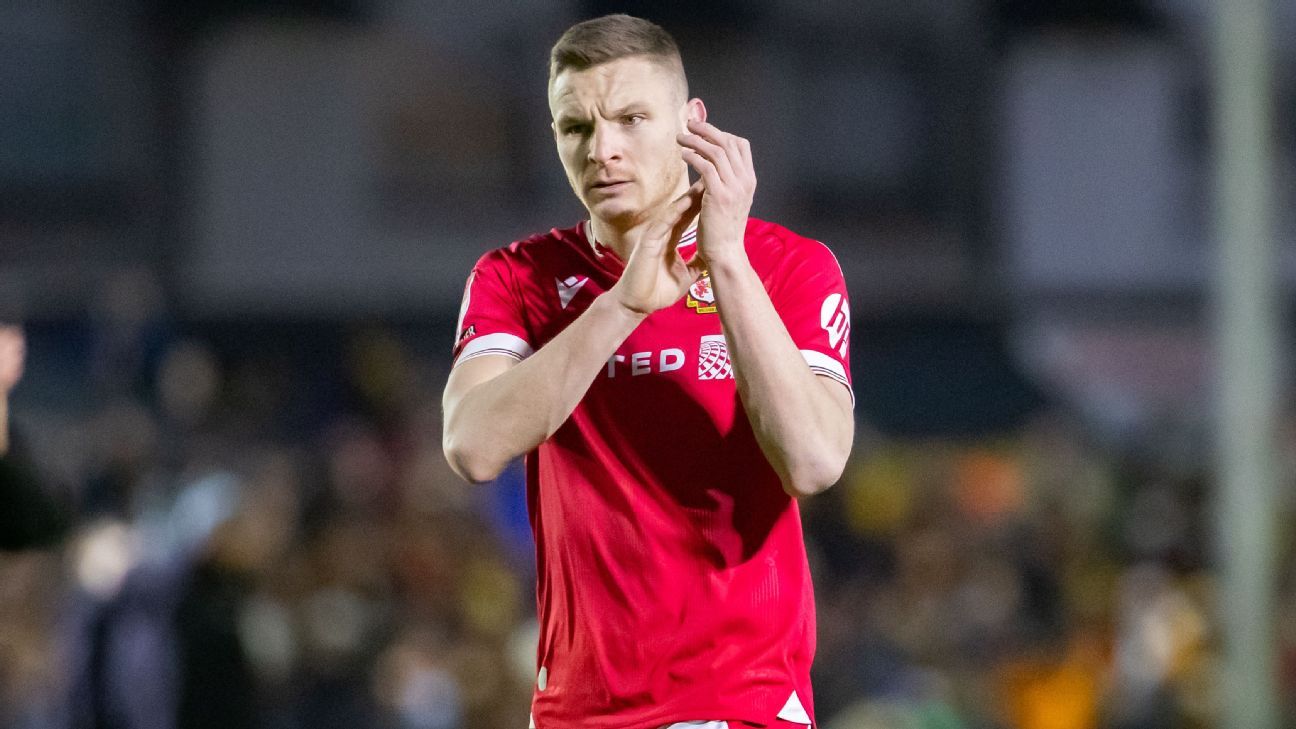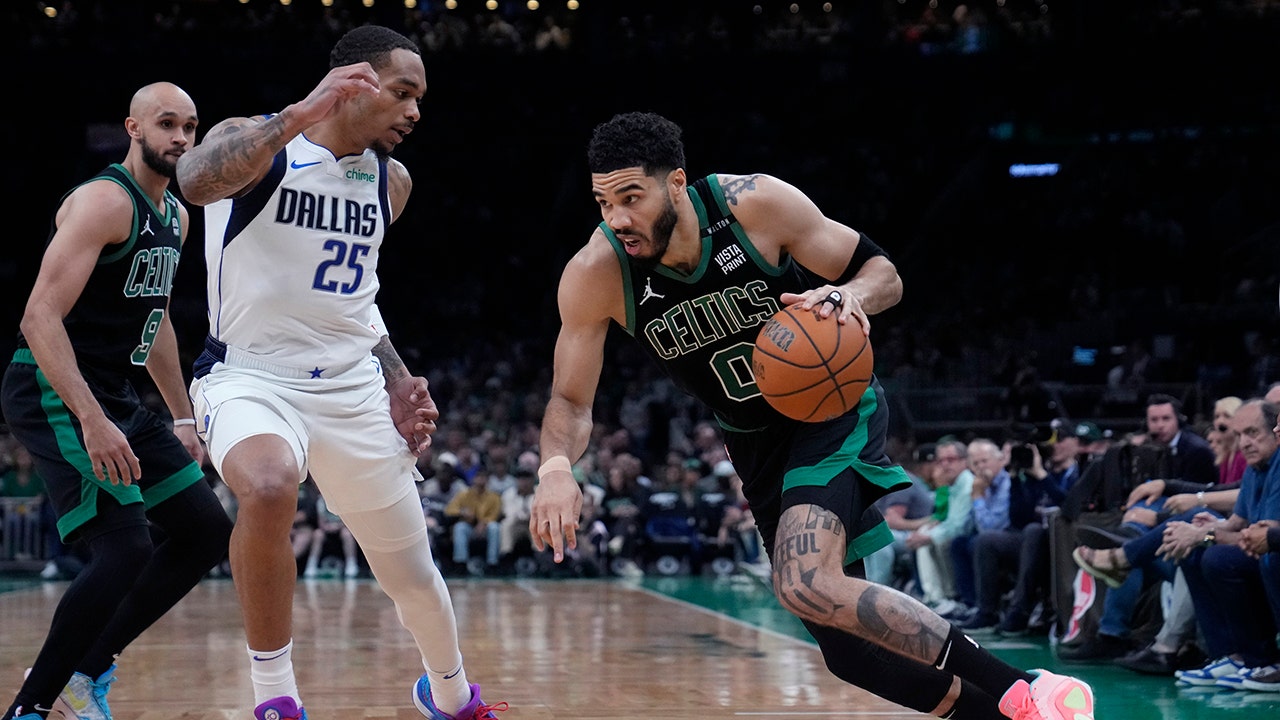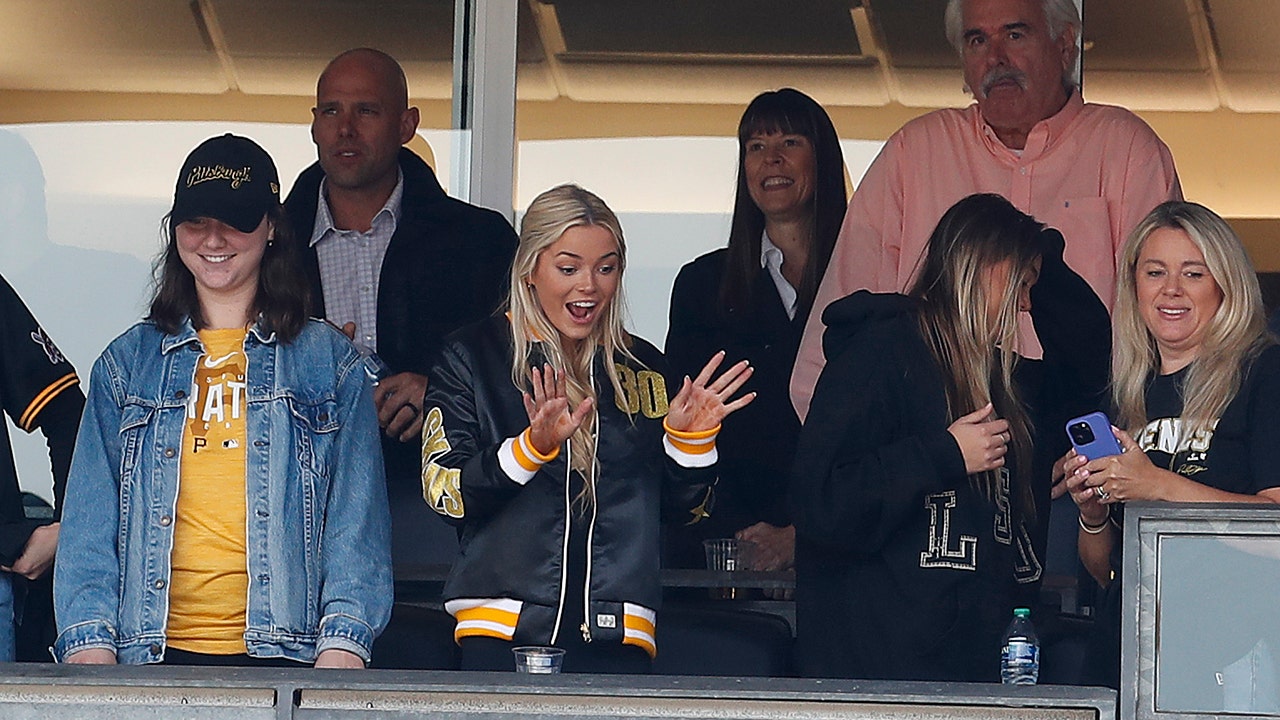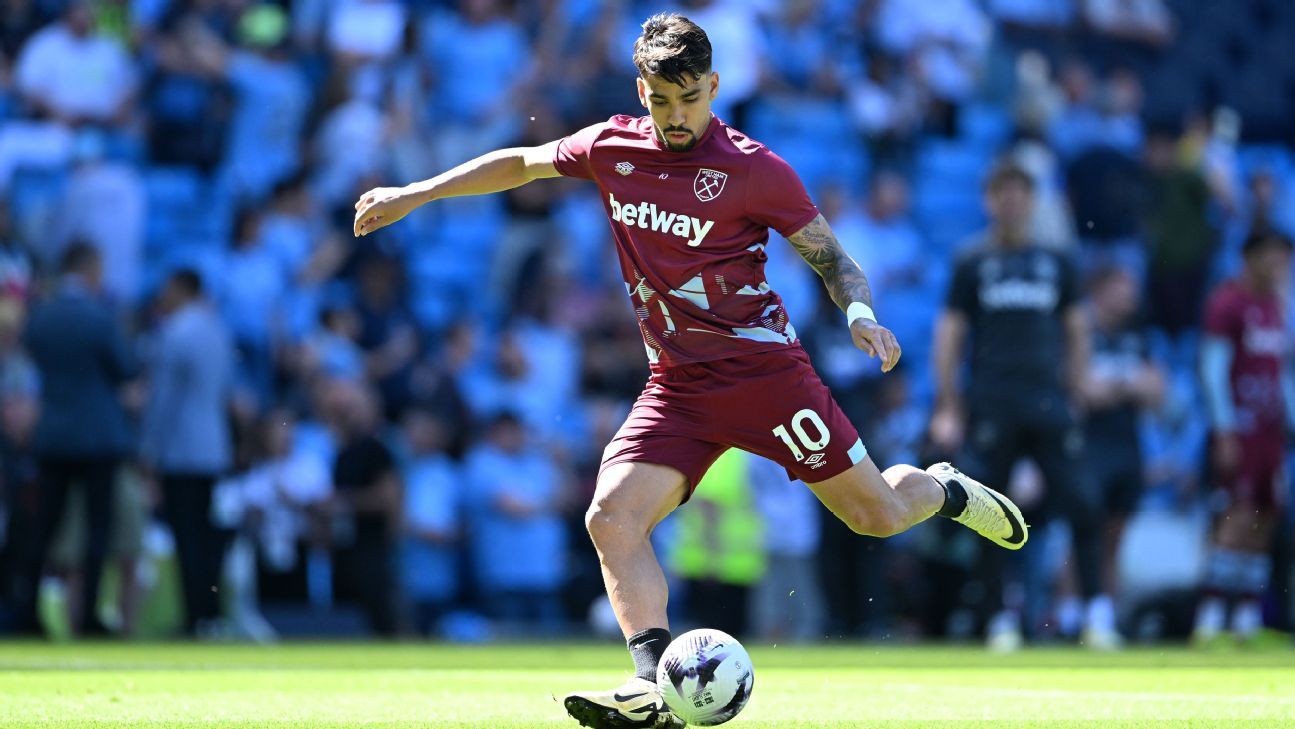CASTLE ROCK, Colo. — Keegan Bradley went from a nervous wreck waiting to see if he would advance in the PGA Tour playoffs to a day of mile-high birdies Thursday that led to a 6-under 66 and the lead at the BMW Championship.
Bradley, the new U.S. Ryder Cup captain, was the last to enter the 50-player field at Castle Pines and had to work hard Sunday. He was in his hotel room with the TV on, the FedEx Cup standings on another screen and his phone ringing.
“It was one of the toughest afternoons of my PGA Tour career,” Bradley said. “It was really brutal. It's a big relief to be here. I felt a lot calmer today, but I played really, really well.”
That was on display on a course that could dish out punishment without warning. Bradley missed just two fairways and two greens, took advantage of the par 5s and made it look relatively easy on the 8,130-yard course, the longest in PGA Tour history.
Hideki Matsuyama, the winner of the first playoff match last week, was 5 under par in the middle of the 18th fairway when the opening round was halted by lightning in the area, a common occurrence during the International days at Castle Pines.
Rory McIlroy was about to make a 20-foot par putt on the 18th hole when he heard the horn signaling play would be halted, smiled and marked his ball. He would probably wait three hours to make the putt.
Adam Scott, among two players who were at Castle Pines during his two decades on the PGA Tour, made a long putt to save par on the 18th for a 68 and was joined by Sungjae Im, Alex Noren and Corey Conners.
Two-time major winner Xander Schauffele opened with a 69 while playing alongside Scottie Scheffler, who overcame mild back pain to finish with a 71. Scheffler is assured of being the No. 1 seed at next week's Tour Championship unless Schauffele wins.
At Castle Pines, it's all about numbers, and it's not just the math involved in calculating the distance the ball travels at 6,300 feet above sea level. The simple math is to subtract 10% from the distance traveled, which is pretty straightforward, except when there's a pond protecting the front of the green.
The other number is 30, the players who will advance to East Lake next week to compete for the FedEx Cup title, with a prize of $25 million. The higher the position, the better the chance.
Bradley had reason to believe he could join them based on the way he played, even with three rounds to go. The key was getting to the BMW Championship, which allows him to plan a schedule that will put him in the same place as players hoping to make the Ryder Cup team.
“I want to be there with the guys on the Ryder Cup team,” he said. “I want to play with them, on the practice range, in the locker room, in the tournament. It was very important for me to be in the top 50.”
It was a good start for Noren, who has never been to the Tour Championship and is ranked 45th in the FedEx Cup. Same for Scott, ranked 41st.
The Australian's experience at Castle Pines is a bit overrated. Scott was a 20-year-old who received a sponsor exemption in 2000 to play his first regular PGA Tour event. He remembered some of the holes, the elevation changes, the difficult hike and the beauty.
“I remember being around all the players I looked up to throughout my childhood and not feeling ready for it, to be honest,” he said. “But it inspired me to get better and work on my game and make sure I'm good enough to be here.”
Scheffler craned his neck to the side several times, but then on the 17th appeared to hurt his lower back hitting a long iron into the par-5. His final two full shots looked fine, as did much of the rest of his round. Scheffler said there was nothing to be alarmed about.
“I woke up a little sore this morning. I had a hard time relaxing a little bit,” he said. “I was working most of the day to get through the ball. On 17, I was trying to hit a high draw, and that's a shot where I really have to use a big spin, a big movement. I really felt it a little bit. But other than that, all good.”
Scheffler had a neck problem at the Players Championship and nearly retired midway through the second round. Two days later, he rallied from a five-shot deficit to win. And then he won the Masters three weeks later.
“He was very tense at the Masters and the Players and had to work hard all the time,” Schauffele said. “I guess that's a bad sign for everyone else.”

